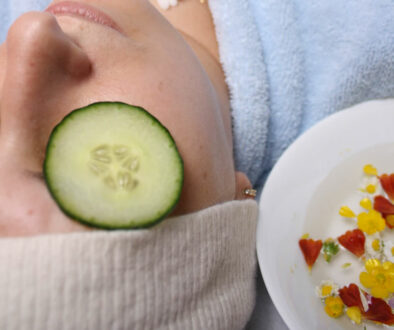Probiotics for Eczema: Healing from the gut
Probiotics are live bacteria and yeasts that are good for your health, especially your digestive system. They are often referred to as “good” or “friendly” bacteria because they help keep your gut healthy. Emerging research has also shown potential benefits for skin health, including the management of conditions like eczema.
Why Use Probiotics for Eczema?
Here are several reasons why probiotics could be a beneficial addition to a strategy for managing eczema:
- Gut-Skin Axis: A growing body of research supports the connection between gut health and skin health. By maintaining a healthy gut microbiome, probiotics may influence skin health and help manage inflammatory skin conditions like eczema.
- Immune Regulation: Probiotics can help balance the body’s immune response, which is particularly relevant for eczema, an inflammatory condition often linked with an overactive immune response.
- Inhibition of Harmful Bacteria: Probiotics can help inhibit the growth of harmful bacteria, potentially preventing them from triggering inflammatory responses in the skin.
How to Use Probiotics for Eczema?
Probiotics can be incorporated into your routine in a couple of ways:
1. Dietary Sources: Probiotics are naturally found in fermented foods like yogurt, kefir, sauerkraut, pickles, and kombucha. It can also be found in miso, kimchi, tempeh, buttermilk, cheese and natto. Incorporating these foods into your diet can increase your intake of beneficial bacteria.
2. Supplements: Probiotic supplements are widely available and can be a good option if you can’t or don’t want to consume fermented foods. The strains most commonly associated with skin health benefits include Lactobacillus and Bifidobacterium species. Always follow the dosage instructions on the supplement packaging.

When to Use Probiotics?
Probiotics can be taken on a daily basis, and it may take several weeks to see a noticeable improvement in your skin. It’s important to note that while probiotics can be a beneficial part of an overall strategy for managing eczema, they are not a standalone cure and should be used in conjunction with other recommended treatments.
What Else are Probiotics Good for?
In addition to their potential benefits for eczema, probiotics have numerous other health benefits:
1. Digestive Health: Probiotics are most known for their role in digestive health. They can help prevent and treat a range of digestive issues, from antibiotic-associated diarrhea to irritable bowel syndrome.
2. Mental Health: Some research suggests a link between gut health and mental health, a connection referred to as the gut-brain axis. Some studies have found that probiotics can help reduce symptoms of depression and anxiety.
3. Immune Health: Probiotics can help strengthen the immune system, making the body more resilient against infections.
4. Weight Management: Some strains of probiotics have been found to assist with weight loss and prevent weight gain.

As with any supplement, it’s crucial to talk to a healthcare professional before starting probiotics, particularly for those with compromised immune systems or other health conditions. The effects of probiotics can vary greatly between individuals, and it may take some trial and error to find the right strain and dosage that work for you.











